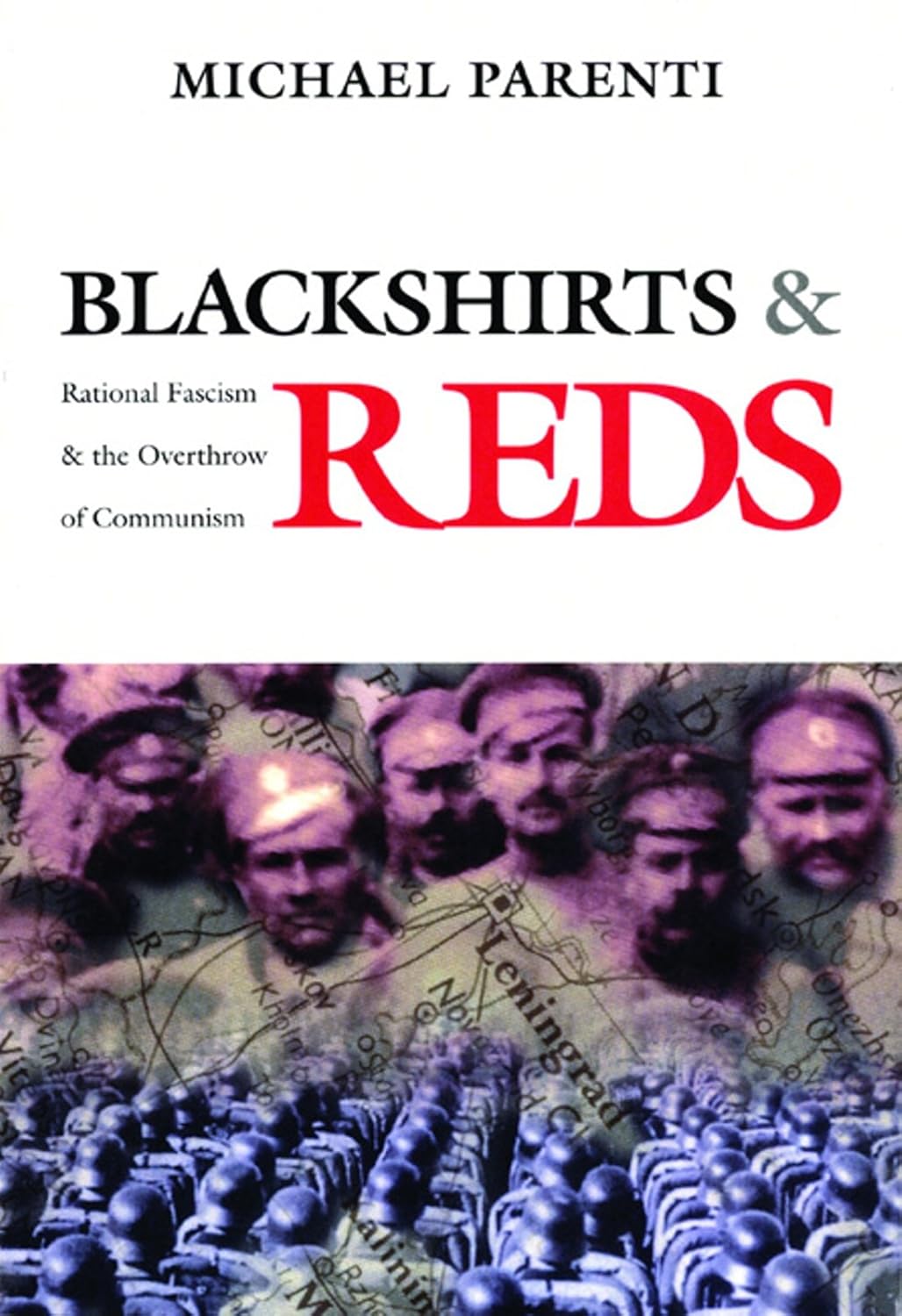
Blackshirts and Reds: Rational Fascism and the Overthrow of Communism
FREE Shipping
Blackshirts and Reds: Rational Fascism and the Overthrow of Communism
- Brand: Unbranded

Description
I'd recommend this book to all people who consider themselves to be leftists; especially to those Fukuyamaist social democrats, who think that capitalism is here to stay and it's the best we've got and we should just fight for social reforms rather than an entire system change, even though the welfare capitalism has systematically been disintegrated everywhere in the West since the overthrow of socialist countries and even though the economic exploitation of the so called Third World is greater than ever (the few rich Western countries extract over 3 trillion dollars a year from the poor countries in the world impoverishing them further and further; that's why over 4,5 billion people live in chronic poverty and it's a growing number of people) and social democracy can do nothing about that, because it's still the profit driven capitalist system that needs to expand and grow infinitely at the same time absolutely destroying the environment. It took me a while to read; although flowing, it is dense with fantastic ways of framing or phrasing an issue that I think deserve a moment of contemplation.
Anticommunist propaganda saturated our airwaves, schools, and political discourse. Despite repeated and often factitious references to the tyranny of the Red Menace, the anticommunist opinion makers never spelled out what communists actually did in the way of socioeconomic policy. This might explain why, despite decades of Red-bashing propaganda, most Americans, including many who number themselves among the political cognoscenti, still cannot offer an informed statement about the social policies of communist societies.” Césaire's essay stands as an important document in the development of third world consciousness—a process in which [he] played a prominent role." I'd heard about Parenti as a principled anticapitalist for years, seen him referenced and quoted. It was finally time to try to read his work, and I was excited.Marx believed that as wealth becomes more concentrated, poverty will become more widespread and the plight of working people evermore desperate. According to his critics, this prediction has proven wrong. They point out that he wrote during a time of raw industrialism, an era of robber barons and the fourteen-hour work day. Through persistent struggle, the working class improved its life conditions from the mid-nineteenth to the mid-twentieth centuries. Today, mainstream spokespersons portray the United States as a prosperous middle-class society. Yet one might wonder. During the Reagan-Bush-Clinton era, from 1981 to 1996, the share of the national income that went to those who work for a living shrank by over 12 percent. The share that went to those who live off investments increased almost 35 percent. Less than 1 percent of the population owns almost 50 percent of the nation’s wealth. The richest families are hundreds of times wealthier than the average household in the lower 90 percent of the population. The gap between America’s rich and poor is greater than it has been in more than half a century and is getting ever-greater. Thus, between 1977 and 1989, the top 1 percent saw their earnings grow by over 100 percent, while the three lowest quintiles averaged a 3 to 10 percent drop in real income.” Forgotten the title or the author of a book? Our BookSleuth is specially designed for you. Visit BookSleuth The political orthodoxy that demonizes communism permeates the entire political perspective. Even people on the Left have internalized the liberal/conservative ideology that equates fascism and communism as equally evil totalitaran twins, two major mass movements of the twentieth century. This book attempts to show the enormous differences between fascism and communism both past and present, both in theory and practice, especially in regard to questions of social equality, private capital accumulation, and class interest. Written with lucid and compelling style, this book goes beyond truncated modes of thought, inviting us to entertain iconoclastic views, and to ask why things are as they are.
what is more reductionist than to ignore the underlying dynamics of economic power and the conflict between capital and labor? What is more misleading than to treat occupational groups as autonomous classes, giving attention to every social group in capitalist society except the capitalist class itself, to every social conflict except class conflict?” Written with lucid and compelling style, this book goes beyond truncated modes of thought, inviting us to entertain iconoclastic views, and to ask why things are as they are. It is a bold and entertaining exploration of the epic struggles of yesterday and today. No system in history has been more relentless [than capitalism] in battering down ancient and fragile cultures, pulverizing centuries-old practices in a matter of years, devouring the resources of whole regions, and standardizing the varieties of human experience.” Book Genre: Anthologies, Collections, Economics, Essays, Historical, History, Nonfiction, Philosophy, Political Science, Politics, Theory, WritingHere were two peoples, the Italians and Germans, with different histories, cultures, and languages, and supposedly different temperaments, who ended up with the same repressive solutions because of the compelling similarities of economic power and class conflict that prevailed in their respective countries. In such diverse countries as Lithuania, Croatia, Rumania, Hungary, and Spain, a similar fascist pattern emerged to do its utmost to save big capital from the impositions of democracy. ⁴ Whom Did the Fascists Support? In Germany, a similar pattern of complicity between fascists and capitalists emerged. German workers and farm laborers had won the right to unionize, the eight-hour day, and unemployment insurance. But to revive profit levels, heavy industry and big finance wanted wage cuts for their workers and massive state subsidies and tax cuts for themselves.
- Fruugo ID: 258392218-563234582
- EAN: 764486781913
-
Sold by: Fruugo
